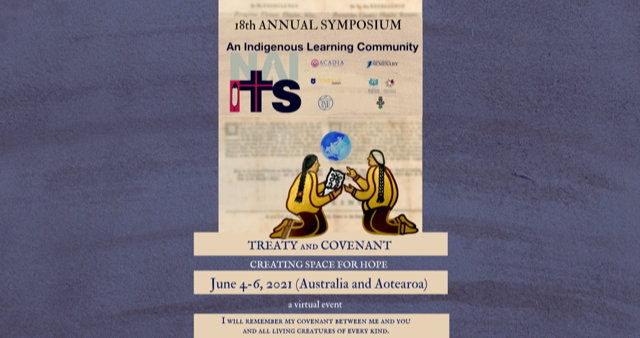
Treaty and Covenant: Creating Space for Hope
Whether it was Indigenous peoples of North America, Central and South America, the Philippines, Australia, New Zealand or elsewhere in the globe, who received early Dutch, English, French, Spanish or other European explorers, there were well-established treaty making or similar traditions that guided their responses to the newcomers to their lands. These treaty traditions were encoded in wampum belts and the oral traditions of the various peoples and served as a template for new sacred agreements with these European nations.
European explorers, in turn, came from a Christian heritage that articulated the ideas of covenant and testament, ideas akin to Indigenous treaty making traditions. Each nation, whether Indigenous or European, had a unique understanding of sacred ‘relationship-making’ institutions and ceremonies, reflecting its special genius. A recognition that treaties, covenants, and testaments are the most sacred and binding of community and individual agreements witnessed by the Creator or God, as each nation conceived of her/him/they/it, was a commonality that should have portended peaceful possibilities of new relationship.
The failure to connect in this way, as a meeting of fundamentally differing national philosophies, spiritualties, or frames of reference underlies the failure to achieve the Haudenosaunee Kayanerekowa (Great Peace), the Māori notions of Te Tatau Pounamu (The Greenstone Door) and Hohou-rongo, the Cherokee Nvwatohiyadv (Harmony Way), the Australian Indigenous understanding of Makarrata (The Coming Together) or the Lakota Cangleska Wakan (Sacred Hoop). These treaty/covenant/testament making traditions still stand as therapeutic, healing processes in today’s polarized and fractious societies. Together, they testify to the intention of the Creator of all things – that is to say the renewal of all of creation through the Christ.
Explorations, rediscoveries, and experiences of the implementation of these ancient relationship-making processes are the theme of the NAIITS 2021 Symposium.
Register here.
About NAIITS
NAIITS: An Indigenous Learning Community is dedicated to working together with Indigenous communities in the development and articulation of Indigenous perspectives in theology and practice. NAIITS is one of two divisions of Indigenous Pathways, a non-sectarian organization dedicated to working together with the Indigenous community to develop and articulate Indigenous perspectives in theology and practice. We encourage Indigenous learning styles and world views in our instruction as we facilitate the development of a body of written work addressing biblical, theological, and ethical issues from within Native North American and other Indigenous perspectives. We do so in concert with partners of other ethnicities whom we have invited to speak into this context. NAIITS currently has five degree program partnerships offering undergraduate, graduate, and post-graduate programs.
For information about studying with NAIITS, visit https://www.whitley.edu.au/study/specialist-programs/naiits.

